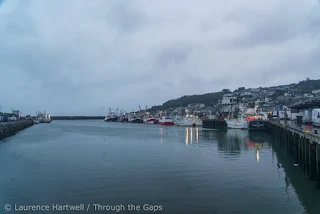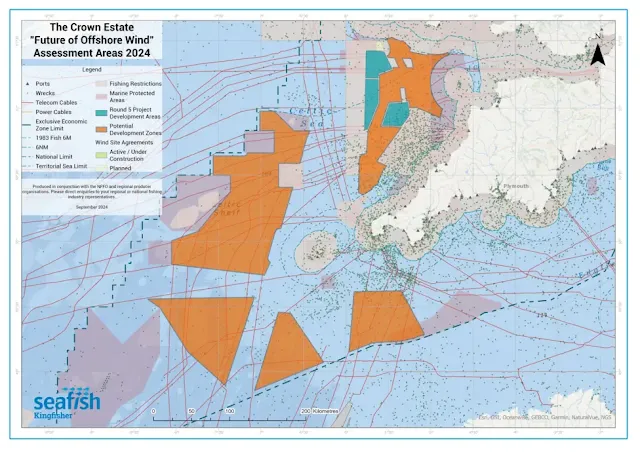 |
| Pollack fishing using boards |
Run by University of Plymouth staff: Dr Emma Sheehan, Dr Thomas Stamp, Dr Rebecca Nesbit and Dr Bryce Stewart (MBA)
Data collection
Pollack will be fitted with acoustic tags, allowing their movements to be tracked using a network of receivers around the UK and Europe. Each tag continuously emits a uniquely coded ‘ping’ which can be detected by receivers on the seabed. This tracking data will reveal when and where pollack migrate, and identify habitats that are important for the fish, particularly at sensitive times such as spawning. It will also provide mortality estimates by identifying uncharacteristic absences of tagged fish. Pollack FISP
Working together
Fisheries data will also be collected by project partners. Anecdotal reports from commercial and recreational fishers have reported declining catch rates, with boats having to increase effort to capture fewer and smaller fish. To provide empirical evidence and inform future sustainable management, the project will analyse historic trends in pollack populations using catch logbooks from charter boats and records of trophy catches held at angling clubs. For the duration of the project, a consortium of charter vessels will collect Catch Per Unit Effort data.
In addition, a subsample of fish will be retained to provide biological data for stock assessment. Stomach contents will be analysed to identify prey species, and gonads will be used to calculate spawning activity. Each fish will be measured and aged, providing information on their size at different ages and at maturity.
Aims
Overall, the project will provide a strong evidence-base to inform sustainable management of pollack fisheries in the Channel. To help translate the data into policy, fishers will be interviewed to identify common concerns and ideas for fisheries-management recommendations. The project is led by Dr Emma Sheehan and post-doctoral researcher Dr Thomas Stamp from the University of Plymouth. It is supported by funding from the Defra Fisheries in Science Partnership (FISP) scheme, and delivered in partnership with the Professional Boatman’s Association, the University of York, the Marine Biological Association, the Angling Trust and Cefas. Research vessel
Professional Boatmans AssociationProfessional Boatmans Association Angling TrustAngling Trust University of YorkUniversity of York Cefas logoCefas Marine Biological Association logoMarine Biological Association University of Plymouth logoUniversity of Plymouth
Get involved with the Pollack FISP
The Pollack FISP is a true collaboration between scientists and the fishing community, so we are keen to hear from anyone who would like to get involved. We will be speaking with recreational anglers, charter skippers and commercial pollack fishers to learn more about their experiences of pollack fishing, their opinions on the current status of the stock and their views on future stock management. If you are a pollack fisher and are happy to be interviewed, please email Simon Thomas: simon.f.thomas@york.ac.uk
We are also collecting data from logbooks and trophy catch records to look for historic trends. If you have access to information that you’d be happy to share, please email Simon Thomas: simon.f.thomas@york.ac.uk Some of the fish we’ve tagged have been fitted with a yellow 'floy' tag at the base of the dorsal fin. On this tag you will see an email address (fishtagging@plymouth.ac.uk) and a tag ID number. If you catch a tagged fish, please email us with as much information as possible about when and where the fish was caught. If you’re fishing on secret marks, even just knowing this fish has been recaptured is extremely valuable to us.





































